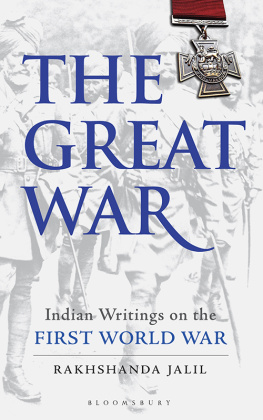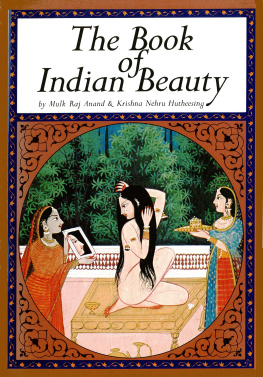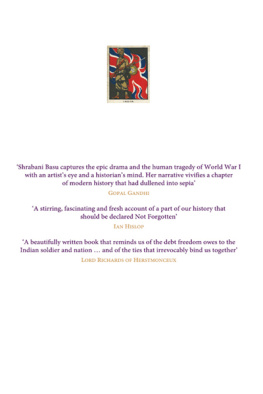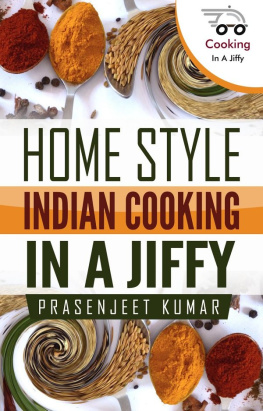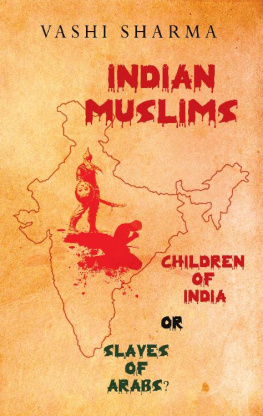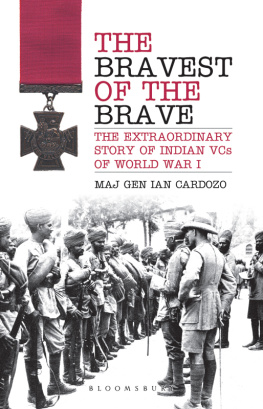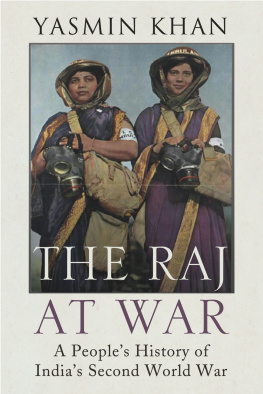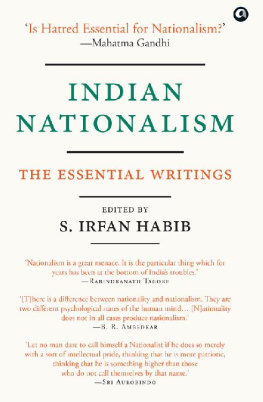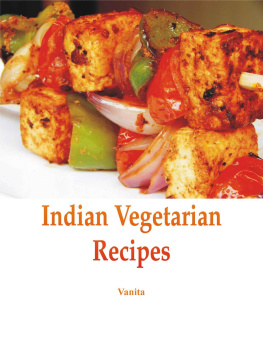Table of Contents

The Great War
The Great War
Indian Writings on the
First World War
Edited and introduced by
Rakhshanda Jalil

BLOOMSBURY INDIA
Bloomsbury Publishing India Pvt. Ltd
Second Floor, LSC Building No. 4, DDA Complex, Pocket C 6 & 7,
Vasant Kunj New Delhi 110070
BLOOMSBURY, BLOOMSBURY INDIA and the Diana logo are trademarks of
Bloomsbury Publishing Plc
First published in India 2019
This edition published 2019
Copyright Rakhshanda Jalil, 2019
Illustration Malini Saigal
Rakhshanda Jalil has asserted her right under the Indian Copyright Act to be identified as Author of this work
All rights reserved. No part of this publication may be reproduced or transmitted in any form or by any means, electronic or mechanical, including photocopying, recording, or any information storage or retrieval system, without prior permission in writing from the publishers
Bloomsbury Publishing Plc does not have any control over, or responsibility for, any third-party websites referred to or in this book. All internet addresses given in this book were correct at the time of going to press. The author and publisher regret any inconvenience caused if addresses have changed or sites have ceased to exist, but can accept no responsibility for any such changes
ISBN: HB: 978-9-3882-7126-4; eBook: 978-9-3882-7128-8
2 4 6 8 10 9 7 5 3 1
Created by Manipal Digital Systems
Printed and bound in India
Bloomsbury Publishing Plc makes every effort to ensure that the papers used in the manufacture of our books are natural, recyclable products made from wood grown in well-managed forests. Our manufacturing processes conform to the environmental regulations of the country of origin.
To find out more about our authors and books visit www.bloomsbury.com and sign up for our newsletters
This volume is dedicated to the remarkable Maulana Hasrat Mohani, the poet-politician who features in these pages, who lived through the Great War, who was amongst the earliest votaries of complete independence for India, and who gave the enduring cry of Inquilab Zindabad! to revolutionaries the world over.
CONTENTS
Introduction
The Russo-Japanese War (19041905), the Balkan Wars (in 1912 and 1913), the First World War (19141918) and the developments on the eve of and in the aftermath of the Khilafat Movement (19191922) had a profound effect on Indian politics and, by extension, Indian literature. The Japanese victory over Russia was seen as a significant landmark in galvanising the Asian nations against the hegemony of the European powers. Jawaharlal Nehru, in his autobiography, captured the excitement of those years: Japanese victories stirred up my enthusiasm and I waited eagerly for papers for fresh news daily Nationalistic ideas filled my mind. I mused of Indian freedom and Asiatic freedom from the thralldom of Europe.
The Japanese victory inspired Asian leaders and stiffened their resolve to end colonial domination. In India, the extremists led by Bal Gangadhar Tilak felt vindicated, for they had all along rejected the politics of mendicancy or subservience in favour of radical activism. Tilak and Aurobindo Ghose began to challenge the existing Indian National Congress leadership with a new ideology that combined Hindu revivalism and a far more militant political activism than the stalwarts within the Congress, Indias then-largest political party, had hitherto been used to. Content to secure greater Indian participation in existing systems of governance, the Congress was, till then, an elitist, amorphous sort of organisation.
Before we come to the Great War, as the First World War is referred to in contemporary accounts, let us briefly look at some more significant events in the years leading up to it. First, there was the draconian Press Act of 1913 that forced many a nationalist newspaper out of business; Hasrat Mohanis Urdu-e-Moalla and the Tauhid, which had their security deposits confiscated in 1913, Maulana Abul Kalam Azads al-Hilal and Maulana Mohamed Ali Jauhars Comrade were forced to shut shop in 1914. The Ali brothers were imprisoned in 1915, followed, a year later, by Mohani and Maulana Azad for writing/publishing seditious material. All this came directly as a result of the Press Act. Gagged and bound, the voices that were beginning to call out for freedom were methodically identified and the agitators silenced, while the British expended all efforts in extracting the maximum possible help from India.
Then, there were the two Balkan Wars and their effects on Indian writers and poets, especially in Urdu. In a rejoinder to his own famous poem Shikwa (Complaint), Jawab-e-Shikwa (Answer to the Complaint), Muhammad Iqbal wrote:
The trouble that is raging in the Balkans
Is a message of awakening to the forgetful
Thou mayst think it the means of vexing thy heart
But in reality it is a test of thy self-sacrifice and self-reliance
Why art thou frightened at the neighing of the enemys horse?
Truths light can never be put out by the breath of the enemy
Shibli Nomanis Hungama-e-Balqaan is perhaps more powerful because it is more restrained, more aware of the far-reaching implications of the trouble in the Balkans:
When decline has set in over political power,
The name and banner will stand how long?
The smoke from the burnt candle of
A vanished assembly will rise how long?
When the sky has torn the mantle of power to pieces,
Its shreds will float in the air how long?
Gone is Morocco, gone is Persia. We have now to see
This helpless sick man of Turkey will live how long?
This tide of woe which is advancing from the Balkans,
The sighs of the oppressed will stem how long?
Shibli! Should you long to migrate, where can you go now?
Syria or Najd or Gyrene are sanctuaries how long?
Shortly thereafter, war broke out and India found itself drawn into it without fully comprehending its consequences. The Viceroy of India, Lord Hardinge, declared that India also was at war, without consulting any Indian political leaders. The news of the war was received enthusiastically not just by the native princes but ironically also by the political bourgeoisie and educated middle classes who were quick to pledge loyalty and support. The only pockets of resistance were offered by the Ghadar Party, settled mostly in North America and Canada, and by scattered groups of emigres and political revolutionaries who came together to form the so-called Berlin Indian Independence Committee. Initially, the war did not affect most of India save for sporadic food riots, occasional skirmishes and moderate nationalist demands, which rose to a crescendo only by 1918. There were, of course, stories of bereavement, of women being left alone as their men went to battle, especially in Punjab, but they did not impinge on the larger Indian consciousness in the early days.
When Turkey entered the fray on 28 October 1914 on the German side, Indian Muslims found themselves on the horns of a dilemma. On 14 November 1914, in Constantinople, the Ottoman government, in the name of Sultan Mehmed V, issued a fatwa against the Western nations, including Britain, France and Russia. What were Indian Muslims to do? Should they continue to serve under the British as loyal subjects? Should they fight their religious brethren? It was a tightrope walk between loyalty and religious duty, between need and opportunity. On the one hand, Indian Muslims hated the British for the role they had played in dismantling the Ottoman Empire and resentment had been brewing for the Balkan Wars; on the other hand, they were willing to be seduced by the promises held out by the British in return for their support on the Allied warfront as the war dragged on. Meanwhile, Sharif Husain, the Emir of Mecca, proclaimed himself to be the king of Hejaz on 10 June 1916. But, by virtue of a Machiavellian treaty signed between Britain and the House of Saud, Ibn al-Saud (a rival tribesman) was recognised by the former as independent sovereign of Najd, al-Hisa, Qatif and Jubayl. The British increasingly began to have a presence in the Middle East, given their virtual monopoly of the steamer ships carrying pilgrims from all over South Asia to the Hejaz as well as a stranglehold on trade and commerce.

